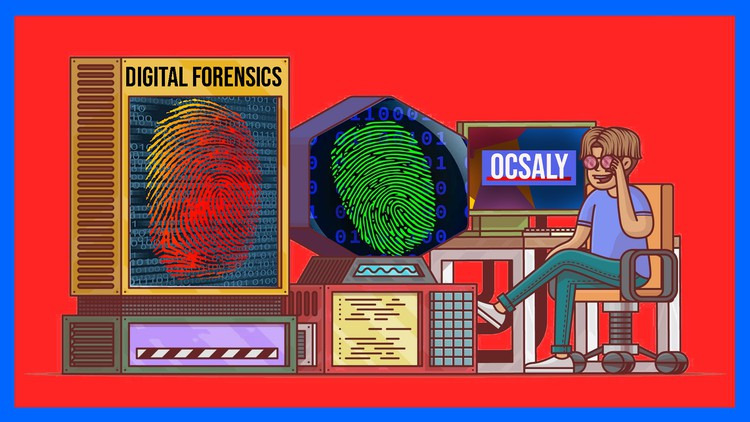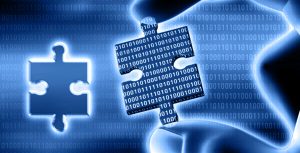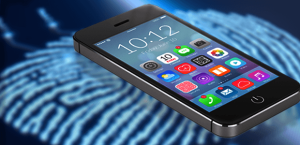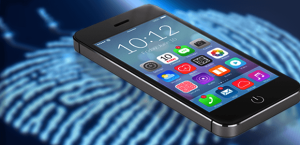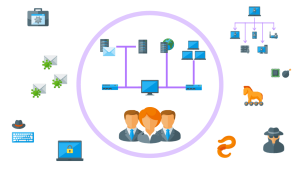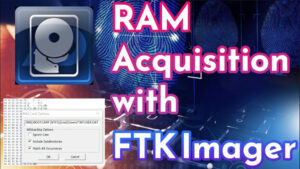In today’s digital age, everything from personal communication to business transactions takes place online. While this has made life more convenient, it has also given rise to new types of crimes and security threats. As a result, there is a growing demand for digital forensics experts who can help solve cybercrimes and protect sensitive information. If you are a student with an interest in technology, digital forensics is a field worth exploring. In this blog post, we will discuss the benefits of taking an online digital forensics course and how it can set you on the path to a rewarding career !
What is Digital Forensics?
Digital forensics is the process of collecting, analyzing, and preserving electronic evidence to investigate and prevent cybercrimes. It involves using a variety of tools and techniques to extract information from devices such as computers, smartphones, and servers. The field of digital forensics is rapidly evolving, and professionals need to keep up with the latest technologies and methodologies to stay ahead of cybercriminals.
Benefits of Taking an Online Digital Forensics Course
By taking an online digital forensics course, you can gain a deep understanding of how cybercrime works and learn how to investigate and prevent it. Here are some of the benefits of taking an online digital forensics course:
- Learn from experts in the field: Our Online 12+ Hours digital forensics course are taught by experienced professionals who have worked on real-life cases. They can provide you with insights and tips that you wouldn’t get from a textbook, pdf or any other alternative courses.
- Flexible schedule: Our Online course offer the flexibility to learn at your own pace and on your own schedule. This is especially useful for students who have part-time jobs or other commitments.
- Hands-on experience: Online courses often include hands-on exercises and simulations that allow you to practice what you have learned in a safe environment.
- Cost-effective: Our Online courses are often less expensive than traditional classroom courses, making them a great option for students on a tight budget.
Why Choose Our Online Digital Forensics Course
Our online digital forensics course is designed to give students a comprehensive understanding of the field. Here are some of the features that set our course apart:
- Expert instructors: Our course is taught by experienced digital forensics professionals who have worked on high-profile cases.
- Real-world scenarios: Our course includes simulations and exercises that simulate real-world scenarios, giving you hands-on experience in a safe environment.
- Flexible learning : Our course is self-paced, which means you can learn at your own speed and on your own schedule.
- Affordable : Our course is priced competitively, making it accessible to students on a budget.
If you are a student with an interest in technology, digital forensics is a field worth exploring. By taking an online digital forensics course, you can gain a deep understanding of how cybercrime works and learn how to investigate and prevent it. Our online digital forensics course is designed to provide you with the knowledge and skills you need to succeed in this exciting and rewarding field. Don’t wait – enroll today and unlock the secrets of digital forensics!

During the 1980s very few specialized digital forensic tools existed, and consequently investigators often performed live analysis on media, examining computers from within the operating system using existing sysadmin tools to extract evidence. This practice carried the risk of modifying data on the disk, either inadvertently or otherwise, which led to claims of evidence tampering. A number of tools were created during the early 1990s to address the problem.
Digital forensics is commonly used in both criminal law and private investigation. Traditionally it has been associated with criminal law, where evidence is collected to support or oppose a hypothesis before the courts. As with other areas of forensics this is often a part of a wider investigation spanning a number of disciplines. In some cases, the collected evidence is used as a form of intelligence gathering, used for other purposes than court proceedings (for example to locate, identify or halt other crimes). As a result, intelligence gathering is sometimes held to a less strict forensic standard.
If you enroll in our Digital Forensics Masterclass | Forensic Science 2023 DFMC, you’ll not only learn about the fundamentals of digital forensics, but so much more! Our course covers a broad range of topics such as analyzing digital evidence from social media and mobile devices, investigating cyber crimes and terrorism, and learning the legal and ethical implications of digital evidence. You’ll gain knowledge on topics like network security breaches, cyberbullying, and even the impact of technology on the legal system. So don’t wait, enroll today and discover the vast world of digital forensics.
Start your Digital Forensics Career Now !
The Topics You Will Learn with Taking This Course !
- Understanding the role of digital forensics in criminal investigations.
- Investigating online fraud and identity theft.
- Cyber Security for Digital Forensics Investigators
- Malware Analysis
- Investigate Volatile and Non-Volatile Memory
- Investigating the use of encryption and data hiding techniques.
- Data Acquisition
- Evidence Analysis
- Open Source Intelligence
- Fundamentals of Computer Forensics
- Debugging and Analysis Malware
- Mobile Forensics
- Web Browser Forensics
- Linux for Digital Forensics and File Analysis
- Digital Forensics Fundamentals
- Understanding the fundamentals of digital forensics.
- Creating Digital Forensics Lab
- Learning the legal and ethical implications of digital evidence.
- TCP/IP
- Identifying the types of digital evidence that can be collected.
- Networking
- Digital forensics LAW
- Computer Forensics for Beginners
- Knowing the basic concepts of file systems and storage devices.
- Analyzing digital evidence using tools such as EnCase and FTK.
- Identifying evidence of cybercrime, cyberterrorism and other cyber threats.
- Learning about the chain of custody and preserving evidence.
- Investigating network security breaches and incidents.
- Collecting, analyzing and reporting digital evidence.
- Understanding the basic principles of computer forensics.
- Conducting effective digital forensic investigations.
- Understanding cyberstalking and other cybercrimes.
- Detecting and analyzing malware and viruses.
- Analyzing mobile devices for digital evidence.
- Learning about forensic lab equipment and technology.
- Investigating the use of social media and digital communication.
- Examining email and instant messaging for evidence.
- Collecting and analyzing data from cloud storage.
- Analyzing web browsing and internet history.
- Investigating cyberbullying and online harassment.
- Understanding the role of digital forensics in civil litigation.
- Examining the security of computer networks.
- Analyzing forensic evidence in civil and criminal cases.
- Collecting evidence from digital devices such as cameras and DVRs.
- Understanding the basics of cryptography and encryption.
- Conducting forensic investigations in a corporate environment.
- Understanding the impact of technology on the legal system.
- and other awesome topics ->

